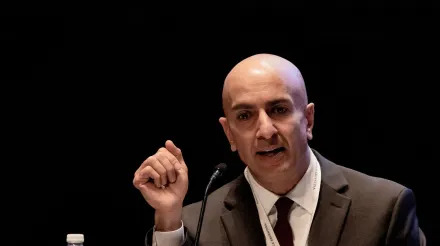
If you're a retiree looking to make the most of your nest egg, putting money into dividend stocks can be a great way to do that. You can help maximize the recurring income you earn by investing in dividend growth stocks, which have strong track records for raising their payouts. Dividend payments are never a guarantee, but companies with strong financials which prioritize growing their payouts can be ideal income investments to hold in your portfolio.
Three dividend growth stocks with high-yielding payouts that may be attractive to retirees today are AbbVie (NYSE: ABBV) , Verizon Communications (NYSE: VZ) , and Prologis (NYSE: PLD) .
AbbVie
Drugmaker AbbVie pays a high dividend yielding 3.3% -- that's more than double the S&P 500 average yield of 1.4%. The stock is technically a Dividend King when you count its time as part of Abbott Laboratories . It spun off in 2013, and it has continued to raise dividend payments. In the past five years, AbbVie has raised its dividend payment by 45%, which averages out to a compound annual growth rate (CAGR) of 7.7%.
With AbbVie, retirees are getting not just a great dividend stock , but also a good growth stock. AbbVie has been investing in multiple companies over the years as a way to bolster its growth prospects. This year, it completed multiple acquisitions, including neuroscience company Cerevel Therapeutics and cancer company ImmunoGen.
AbbVie is facing challenges due to the loss of patent protection in top-selling drug Humira. But it projects that by next year, it'll be back to generating strong growth, aiming for a high-single-digit CAGR in the long run.
Between its high dividend and promising growth opportunities, retirees can get a fantastic all-around investment with AbbVie. The company consistently posts a profit, and it trades at a fairly modest forward price-to-earnings multiple of 18.
Verizon Communications
Retirees can lock in a notably high yield with telecom giant Verizon, which pays investors 6.5%. That's nearly double AbbVie's rate. Investors have been bearish on telecom stocks due to rising interest rates and high debt loads. But big-name players like Verizon still make for sound long-term investments.
The company may not be a growth machine, but it can be a reliable dividend stock to hang on to over time. In its most recent quarter, which ended in June, the company's earnings per share of $1.09 were only slightly lower than the $1.10 per-share profit it posted in the same period last year. More importantly, that's still a much higher level of profit than what the company is paying out in dividends per quarter -- $0.665.
Verizon has increased its dividend by 10% in five years, averaging a CAGR of right around 2%. While that isn't a terribly high rate of growth, with Verizon already paying investors a high yield, retirees will still be collecting plenty of dividend income from the telecom stock even if there aren't big increases. And if inflation continues to come down, at least those 2% increases can potentially be enough to offset rising costs in the years ahead, assuming that Verizon continues making similar raises to its dividend in the future.
Prologis
Prologis is a real estate investment trust (REIT) that invests in warehouses and plays an important role in the e-commerce industry. Many of its customers need large warehouses to help move products all over the world, and as a leading company in logistics, Prologis can benefit from the global economy's long-term growth.
The stock pays the lowest yield on this list, at 3.2%, but that's still an above-average payout. The REIT projects that its core funds from operations (FFO) per share will be around $5.39 to $5.47 this year, which is well above the rate of its annual dividend -- $3.84.
Prologis has been generous when it comes to dividend growth. It has increased its payout from $0.53 five years ago to now paying shareholders $0.96 per share. That amounts to an 81% boost to the dividend during that timeframe, for a CAGR of 12.6%. Given the buffer between the stock's FFO and its dividend, it seems probable that Prologis may continue to make another sizable increase to its payout next year.
Before you buy stock in AbbVie, consider this:





